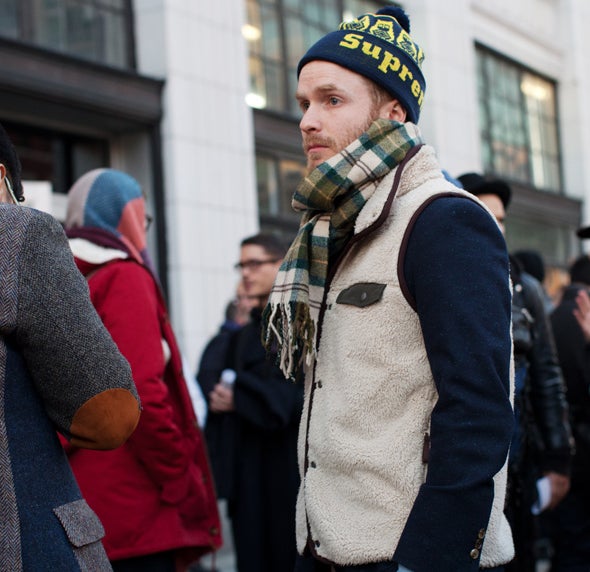
"I am a spokesperson for myself." - Kurt Cobain, Rolling Stone, 1992
Kurt Cobain didn't want to be the voice of his generation. He's not the best candidate for that gig, anyway. Go back through the catalog. Listen to the great records: Bleach, Nevermind, In Utero. "Smells Like Teen Spirit" is a brilliant song full of feeling, but is it a statement of anything more than disaffected anger? "Heart Shaped Box" was apparently about Courtney Love's vagina, and not a children's cancer ward (at least according to one of her reckless Twitter rants).

His lyrics are dense, deeply personal, and often misinterpreted. But that's not really how we'll remember him.
As In Utero turns 20 this week, it has never been more obvious that Cobain's designation as the Godfather of Grunge has all but transcended the brilliant work he did as the frontman for Nirvana. When it comes to style today, he's unrivaled as the greatest influencer of Generations X, Y, and Z. Trend-riding millenials too young to remember the vigils that lasted weeks after Cobain's death in 1994 may not even realize the style debt owed to him.
Even if you can't make sense of his lyrics, one thing he makes clear—through his raspy howl, the ferocity of the guitars, the hard hitting drums, and the destructive live shows—is that he was less than satisfied with the world as he saw it. It was the restlessness of that dissatisfaction which yielded grunge.
And with grunge, came grunge style.
Mismatched, tattered, patched-up, uncoordinated, and utterly carefree—the style that Kurt Cobain cultivated was a break from the strict rules that governed the looks of punks and metalheads. Cobain saw the great irony of a counterculture that required a uniform. After all, conventions are conventions.
But Kurt Cobain didn't just introduce us to flannel shirts, shredded jeans, and beat up sneakers, he presented an approach to personal style with a message that matched his music: Fuck 'em. And in doing so, he tapped into the universal and unavoidable truth: Nothing looks cooler than not giving a fuck.

Cobain's multiple-layered look (which he came to because he was self-conscious about his skinny frame), mismatched, lived-in, outsider-bum aesthetic made the punks in studded leather and carefully sculpted hairstyles look like fussy show dogs. When fashion becomes more important than art, style gets commodified and trends are born. And then, of course: everything that's born eventually dies.
But the thing that's kept Cobain's style relevant for more than twenty years has less to do with the look and more to do with Cobain's ideology behind it. Pharrell Williams borrows from Kurt's DIY oddballness with the drawn-on Timbs and shirt around the waist, and Kanye West proclaims his commitment to rocking flannels on "White Dress." 'Ye even wore a $355 Givenchy tartan shirt to an Occupy Wall Street protest, a weirdly off-kilter echo of Kurt's anti-establishment tendencies. The fashion house Saint Laurent Paris seems to haunt Kurt Cobain's closet. Even cool guy essentials from brands like Supreme use '90s grunge style as a core cultural touchstone in building out their ideas.
No one since Kurt Cobain has so masterfully defined a cultural feeling with a look. Certainly not a rock band. Just look at the landscape now. Vampire Weekend perfectly encapsulated a preppy menswear moment, but they didn't invent it, nor did it stand for anything. Same with The Strokes and their downtown junkie chic steez. Rappers like Kanye and A$AP Rocky own the conversation around fashion, but look where they're taking their cues from.
There is no Nirvana today. And that's fine. They aren't around to tarnish their own record or reinvent themselves and fail (or at least Cobain isn't) like so many bands do. And everywhere we look, in the various interpretations or corruptions of his ideas and aesthetic, his influence lingers. In other words: We'll always have Kurt. In tragedy, we ended up with perfection.
"I wanna do something different, really different, and I want to have enough guts to do that, and if it alienates people, too bad." - Kurt Cobain, MTV, 1993

